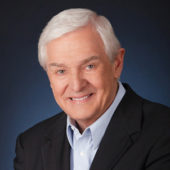It’s the deepest and most beautiful problem I have ever faced. This challenge has filled me with vulnerability and risk. Working through this wonderful problem has yielded life and peace.
Before I get to the problem you must know this: I like to hide. You won’t hear what I’m thinking right away. Some thoughts you will never hear. I craft the image I want you to see; I live in fear you’ll see through the hologram. Hidden in my deepest space is the driving fear, if you really knew me, you wouldn’t like what you see. You say you admire transparency but I know the truth: you will be repulsed if I let you in all the way.
And yet, this is not the problem.
The problem is: the one who knows me best loves me the most. God. God is the problem; all my defenses are useless before him. And it fills me with terror.
Enough about me. Other people have had this problem. A man named David had the same fears:
“You have searched me, Lord, and you know me.
You know when I sit and when I rise;
You perceive my thoughts from afar.
You discern my going out and my lying down;
You are familiar with all my ways.
Before a word is on my tongue you, Lord, know it completely.
You hem me in behind and before, and you lay your hand upon me.
Such knowledge is too wonderful for me, too lofty for me to attain.” Psalm 139:1-6
It is no surprise to me that David wants to run: in verse seven he asks the same question I would ask:
“Where can I go from your Spirit? Where can I flee from your presence?”
By the end of this Psalm David presents the fruit of his struggle. He surrenders. God wins. David opens the secret places to the One who has already been there all along.
“Search me, God, and know my heart; test me and know my anxious thoughts. See if there is any offensive way in me, and lead me in the way everlasting.” Psalm 139:23-24
David invites the Creator into the violent places hidden deep in his heart. In these places God will discover David’s longings, lusts, and insecurities. Am I willing to make the same invitation?
And this is only half the problem. Because the Great Invader of my most secret places—the very God who is holy, holy, holy—loves me despite the tempest raging in my secret place. Not only has God not been fooled by the hologram I have perfected, He loves the confused mess that is the reality of my heart. And I hate this. His love, too, causes me to want to run.
In my pride I resent that there is someone so great, so kind as to look beyond my faults. I writhe under the pain that his love for me is greater than my self-love—greater, deeper, more pure, altogether clean. My insecurities tempt me to reduce the eternal love of God to just another human love that will disappoint in the end.
You’re asking, “What could be so wrong with being loved?” Yet this is precisely where the challenge lives. Do I dare believe such love exists, and that I am the focus of such love? To make peace with this invasive love means the end of my pride, my self-love, my shame and my insecurities. It means (as I said at the beginning) risk and vulnerability because it means absolute surrender to the Other.
If you’ve never worked through the implications of being loved perfectly, you have a journey yet to take. Anyone can accept a gift—even eternal life—without receiving perfect love. The discovery of the Father’s boundless love is an invitation to strip away every other crutch we use to prop up our self worth. Submitting to perfect love means we lose ourselves in him. Are you ready for that kind of loss? Our pride, the shame to which we cling, and our insecurities all whisper, “Take Care! You can never return if you start down this road.”
And they are right.




















